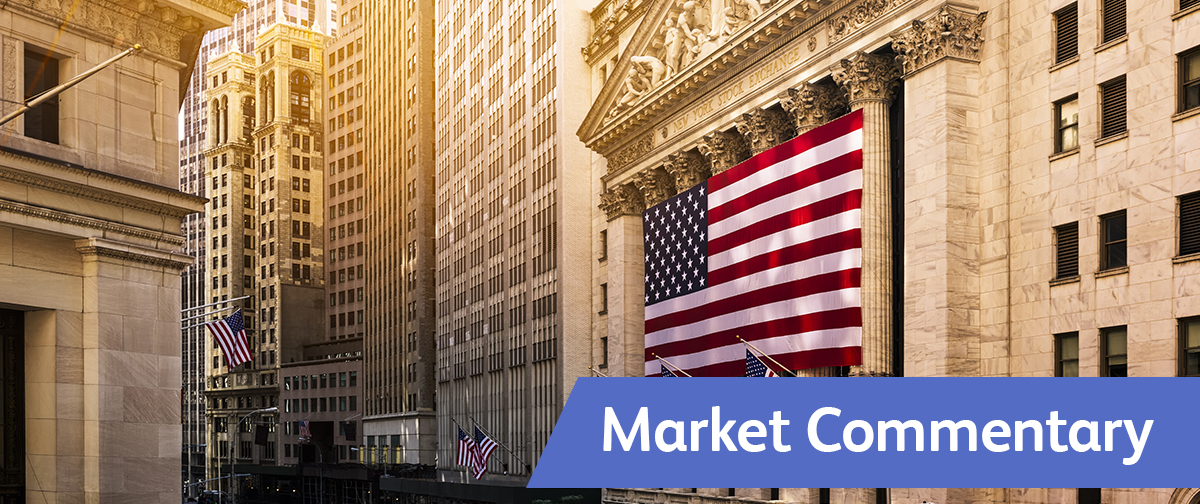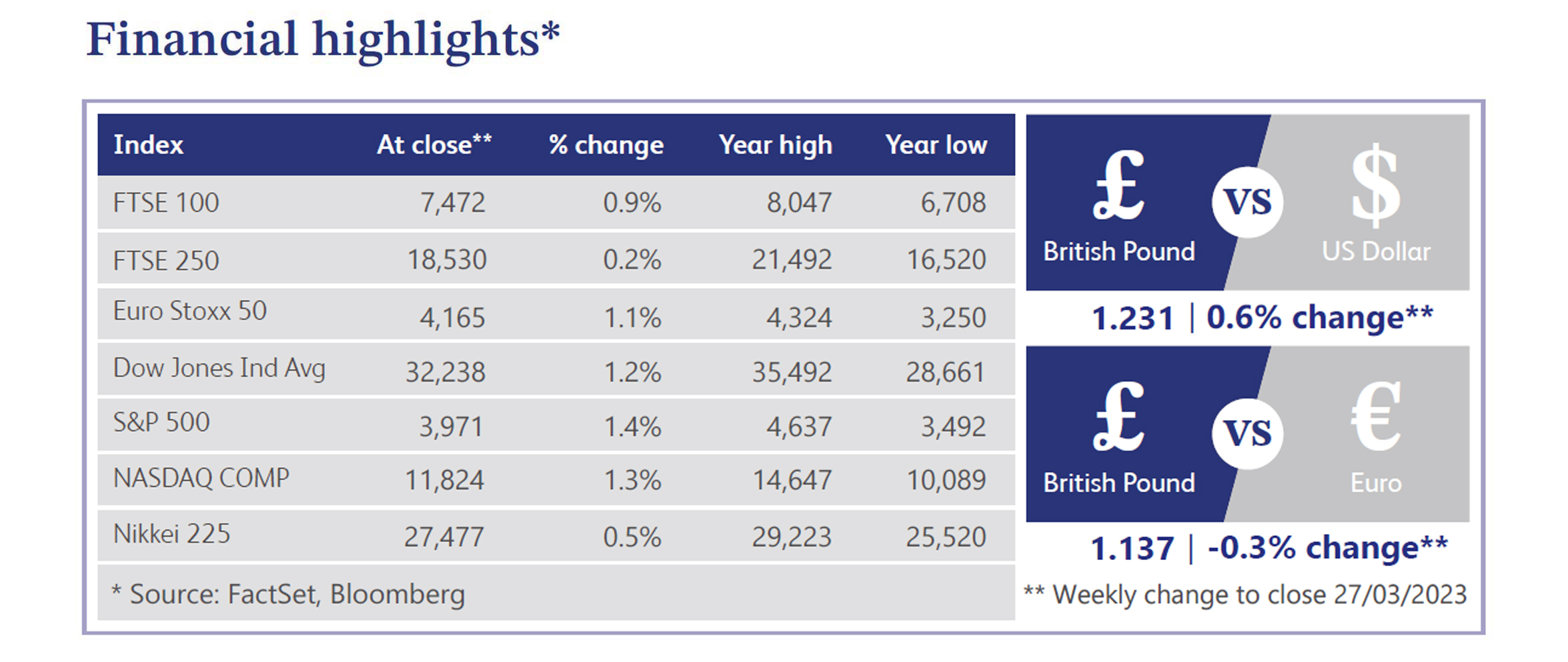
28 March 2023
March madness had a different undertone this year as investors faced market volatility and renewed uncertainties brought upon by a regional banking crisis.
The Bank of England (“BoE”) raised interest rates to 4.25% from 4% in an eleventh consecutive monthly increase. Minutes from the meeting showed that the Financial Policy Committee told policymakers before the vote that the "UK banking system maintains robust capital and strong liquidity positions," and that "the UK banking system remains resilient." Financial markets appear to expect rates to increase again amid no signs of a let-up in inflation. On a year-on-year basis, consumer prices rose to 10.4% in February, well above the consensus expectation.
The latest macroeconomic data pointed to a resilient UK economy, with a purchasing managers’ survey indicating a possible return to growth in the first quarter. S&P Global’s Composite Purchasing Manager’s Index (“PMI”), which measures activity in manufacturing and services, registered an expansion in business activity for a second consecutive month in March. Meanwhile, retail sales volumes rose 1.2% in February – the largest monthly gain since last October.
As was widely expected, the US Federal Reserve (“Fed”) also raised official short-term rates by 25 basis points, and the “dot plot” showing individual policymakers’ rate expectations – while indicating a growing disparity in outlooks – indicated that officials expected to stop raising rates after one more hike in May. References to ongoing rate increases were also removed from the official statement.
Fed Chair Jerome Powell’s post-meeting remarks suggested that the Fed’s change in tone was driven by forecast uncertainty, rather than a strong conviction that a 5% to 5.25% federal funds target range (assuming a 0.25% rate increase in May) would be sufficiently restrictive, making a pause after May all but certain. While acknowledging that tensions in the banking system have tightened credit conditions, Powell’s prepared statement declared that it was “too soon to tell how monetary policy should respond” and warned that policymakers still “anticipate some additional policy firming may be appropriate.”
In response to questions, Powell also added that Fed officials “don't see rate cuts this year – they just don’t," which appeared to lead to a downturn in equity markets to end the day. Investors did not appear to take him at his word, however, with suggestions that further tightening in lending standards due to banking system pressures look set to do the rest of the Fed’s job for them, dragging on economic growth and inflation and reducing the risk of further rate hikes. Futures markets ended the week pricing in a 98.2% chance that rates would end the year lower, according to the CME FedWatch Tool – with a 94.8% chance that cuts would start this summer.

JD Wetherspoon shares surged as the pub chain said sales for the last seven weeks were 14.9% higher than the same period last year as it swung to a half-year profit despite "ferocious" inflationary pressures. The company posted a pre-tax profit of £4.6 million for the 26 weeks to 29 January, compared to a £26.1 million loss in 2022. Revenue also increased to £916 million from £807 million with a free cash inflow of £166 million, compared with a £34.5 million outflow last year. Shares jumped almost 13%, outperforming a slumping market as banking stocks tanked.
Crest Nicholson similarly reported improving sales, as they claimed consumer confidence in the housing market has started to return. Updating on trading, the FTSE 250 homebuilder said its sales per outlet per week rate was 0.52 in the first 11 weeks of the calendar year, compared to 0.35 in the previous 11-week period. It attributed the uptick to an "ongoing and steady recovery in overall consumer confidence and housing market activity since the start of the year", with average selling prices continuing to be supported by a lack of housing supply.
Meanwhile, shares in Inchcape fell sharply, despite the automotive distributor reporting a rise in annual earnings driven by growth in new and used vehicle sales and higher prices. Adjusted pre-tax profit rose 50% to £373 million, while revenue grew 8% to £8.1 billion. The total dividend was lifted 28% to 28.8p a share. However, the shares closed almost 12% lower in London trade on Thursday.
Market Commentary prepared by Walker Crips Investment Management Limited.
This publication is intended to be Walker Crips Investment Management’s own commentary on markets. It is not investment research and should not be construed as an offer or solicitation to buy, sell or trade in any of the investments, sectors or asset classes mentioned. The value of any investment and the income arising from it is not guaranteed and can fall as well as rise, so that you may not get back the amount you originally invested. Past performance is not a reliable indicator of future results. Movements in exchange rates can have an adverse effect on the value, price or income of any non-sterling denominated investment. Nothing in this document constitutes advice to undertake a transaction, and if you require professional advice you should contact your financial adviser or your usual contact at Walker Crips. Walker Crips Investment Management Limited is authorised and regulated by the Financial Conduct Authority and is a member of the London Stock Exchange. Registered office: Old Change House, 128 Queen Victoria Street, London, EC4V 4BJ. Registered in England and Wales number 4774117.
Important Note
No news or research content is a recommendation to deal. It is important to remember that the value of investments and the income from them can go down as well as up, so you could get back less than you invest. If you have any doubts about the suitability of any investment for your circumstances, you should contact your financial advisor.